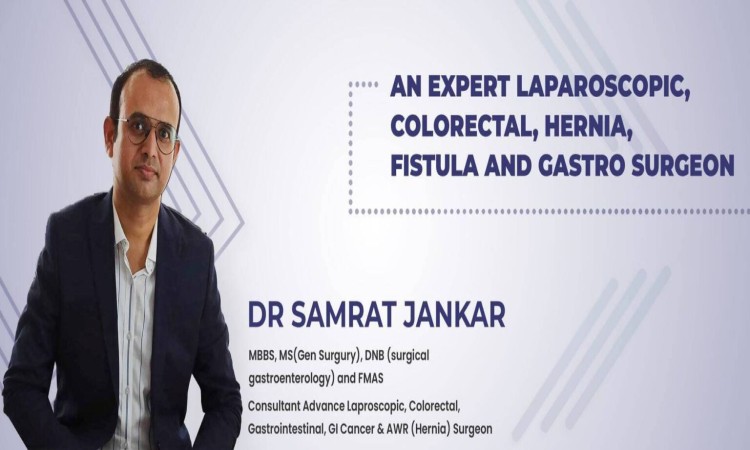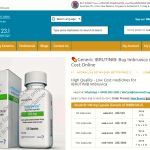Treatment Options for Gastritis | Dr. Samrat Jankar
Treatment Options for Gastritis | Dr. Samrat Jankar
Treatment Options for Gastritis | Dr. Samrat Jankar
Treatment Options for Gastritis
Gastritis is a condition in which the lining of the stomach becomes inflamed and irritated. Most cases of gastritis result from an infection caused by a bacterium called Helicobacter pylori. Excessive alcohol intake and overuse of certain pain relievers are some of the causes of gastritis.
Gastritis varies from patient to patient. Some cases appear suddenly (acute gastritis), while others appear gradually over time (chronic gastritis).
Gastritis symptoms include indigestion, nausea, vomiting, and a burning sensation in the abdomen. In most cases, an upset stomach and indigestion are not severe. Still, if these symptoms last more than a week, they could indicate a more severe issue, such as gastritis, leading to stomach ulcers or bleeding.
If left untreated, gastritis can progress to a more severe condition, such as an ulcer or stomach cancer. Hence, an individual experiencing any of the symptoms mentioned above should visit an experienced gastroenterologist in Pune to seek the best possible treatment before it’s too late.
Continue reading this article to learn more about gastritis and various treatment options for gastritis.
Now, let’s know,
What are the Signs and Symptoms of Gastritis?
- Abdominal pain
- Burning sensation in the abdomen
- Tenderness on pressing the stomach
- Stomach fullness or tightness
- Nausea
- Vomiting
- Loss of appetite
- Foul breath
- Fatigue
- Heartburn
Remember, not all cases of gastritis show symptoms.
Let’s know,
How Is Gastritis Diagnosed?
First, the gastroenterologist in Pune will evaluate the patient and inquire about the signs and symptoms experienced. Then, any of the following tests may be required:
- Blood test: A blood test can detect infection, dehydration, or anemia.
- Fecal test: A fecal sample can be examined for the presence of blood or the germ that’s causing gastritis.
- Breath test: A breath test can reveal whether H. pylori is the source of gastritis. First, a liquid will be given to the patient to consume. After that, the patient will breathe into a bag. The amount of carbon dioxide in the breath will be measured. Carbon dioxide levels that are abnormally high could indicate an H. pylori infection.
- Endoscopy: An endoscopy helps examine the abdomen for inflammation or bleeding.
Now, let’s discuss,
Different Treatment Options for Gastritis
The treatment of gastritis varies considerably based on the cause and kind of gastritis.
Medications
When a Helicobacter pylori infection causes gastritis, it is treated with a variety of medicines. Autoimmune gastritis necessitates iron or vitamin B12 supplements. In addition, antacids and acid reducers sold over the counter can help relieve discomfort. Eradication of the bacteria is the primary goal when treating Helicobacter pylori infections. Different antibiotics or antiviral drugs will be used to treat mycobacterial or viral infections. In some cases, patients can be placed on a proton pump inhibitor (PPI) and antibiotics.
Antibiotics
When a Helicobacter pylori infection causes gastritis, the most important thing is to get rid of the infection. A 10-to-14-day triple-drug combination comprising two antibiotics and a proton pump inhibitor or bismuth salt is commonly used as first-line treatment.
If the triple-drug treatment fails, your gastroenterologist in Pune may try quadruple-drug therapy or a pharmacological sequence.
Proton pump inhibitors
For H. pylori-related gastritis, proton pump inhibitors (PPIs) are the first-line treatment. The stomach acid reducers omeprazole, esomeprazole, and lansoprazole lower stomach acid secretions. As a result, when combined with medications that combat the infection, proton pump inhibitors can heal the stomach lining.
Proton pump inhibitors also reduce stomach acid, which relieves irritation of the stomach lining. So, once the infection has been eliminated, most patients will no longer require acid suppression.
Histamine 2 or H2 blockers
H2 blockers, such as cimetidine or nizatidine, are non-prescription medications that lower stomach acid and treat acute gastritis symptoms. H2 blockers, unlike proton pump inhibitors, work by blocking a chemical called histamine, which would generally triggers stomach cells to secrete acid.
Bismuth salts
Bismuth subsalicylate and bismuth citrate neutralize gastric acid, lessen inflammation, kill microorganisms, and inhibit H. pylori from adhering to the stomach lining. In addition, a bismuth salt with antibiotics can be used to heal gastritis induced by H. pylori.
Antacids
Over-the-counter antacids, such as calcium carbonate, sodium bicarbonate, or magnesium hydroxide, can be used with meals to neutralize stomach acid and relieve gastritis symptoms. Additionally, these antacids can be used to reduce pain produced by stomach acid temporarily.
Cessation
The primary treatment for gastritis induced by toxins (smoking or alcohol) or NSAIDs (ibuprofen and naproxen, among others) that erode the stomach lining is to stop exposing the stomach to these irritants.
Additionally, antacids or over-the-counter stomach acid reducers might help relieve discomfort until the stomach lining recovers.
Diet
Eosinophilic gastroenteritis is a rare form of gastritis that results from an allergic reaction in the stomach lining. As a result, not only the stomach but any component of the digestive system might be affected.
The mainstay of treatment is avoiding foods that trigger allergic reactions. But patients may require immune-suppressing medicines such as corticosteroids or immunosuppressants if the intestines are also impacted.
Supplements
The first-line treatment for autoimmune gastritis is treating anemia with vitamin B12 supplements and iron injections. The body’s ability to absorb iron from the diet is harmed by decreased stomach acid induced by autoimmune gastritis. Furthermore, a stomach enzyme called pepsin is less available, reducing the digestive system’s ability to release and absorb vitamin B12 from dietary proteins.
If you or your loved ones suffer from indigestion, stomach cramps, nausea, or a loss of appetite regularly, it’s time to consult one of the best gastroenterologist in Pune to figure out what’s wrong.









